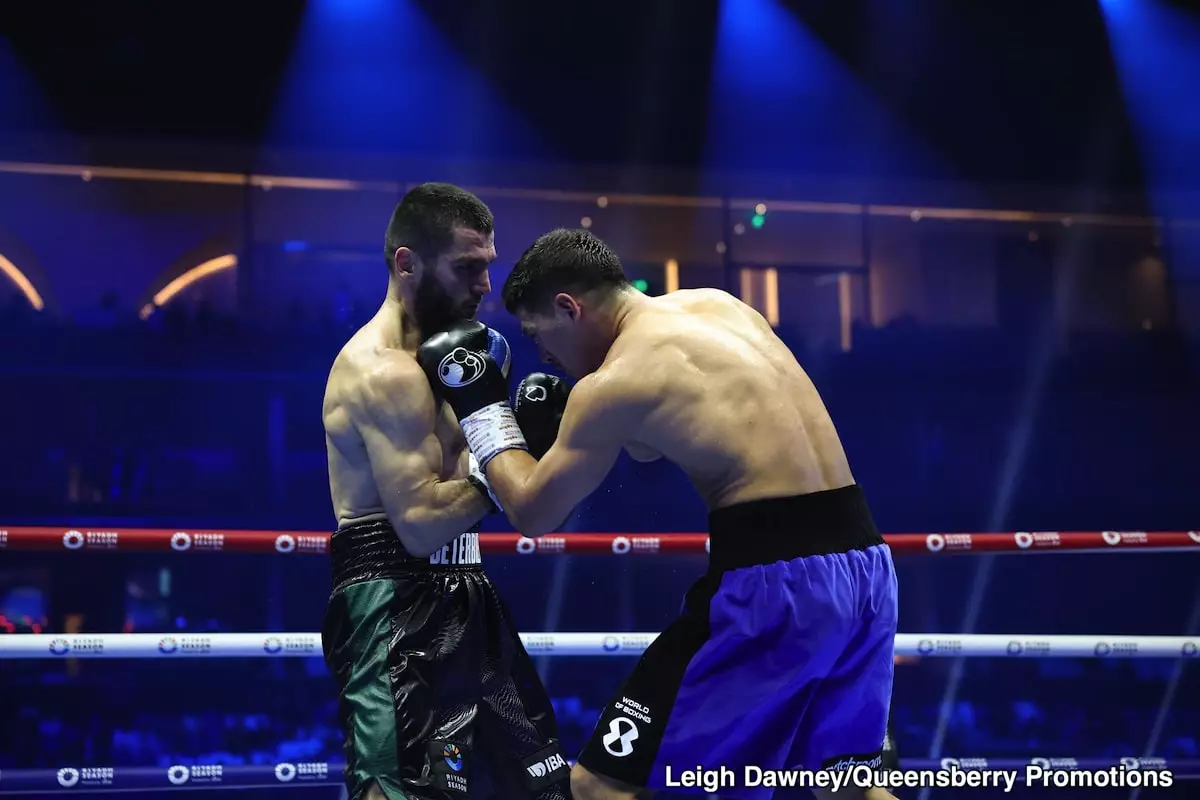The recent lightweight championship bout between Artur Beterbiev and Dmitry Bivol has stirred intense debate among boxing fans, analysts, and promoters alike, igniting conversations about judging criteria and fight dynamics. The spotlight on this match has been undeniable, drawing a wide spectrum of opinions on whether the decision, which resulted in a majority win for Beterbiev, was justified or outright robbery.
Beterbiev and Bivol engaged in a contest that highlighted contrasting fighting styles. Bivol, known for his adept defensive maneuvers, sought to evade punches while looking for an opening to counter. Contrarily, Beterbiev’s approach was aggressive, characterized by powerful strikes that not only landed with authority but also appeared to affect Bivol visibly. Critics argue that Bivol’s strategy, while defensively sound, became overly cautious and led him to neglect one crucial aspect of boxing: offense.
Throughout the fight, Bivol managed to evade many of Beterbiev’s shots, but in doing so, he often found himself withholding his own punches, thus allowing Beterbiev to control the pace and momentum. It wasn’t just about dodging punches; boxing is a scoring sport, and the effectiveness of one’s offense is vital to securing a victory. While Bivol’s defensive skills were commendable, they came at the cost of offensive engagement, especially in the latter rounds, where he seemed to retreat after facing significant punches from his opponent.
The controversy surrounding the judges’ decision stems in part from the subjective nature of scoring in boxing. Tim Bradley, an established boxing commentator, articulated that while Bivol’s defense was impressive, his lack of engagement in the later rounds led to a deserved victory for Beterbiev. Judging a boxing match is not merely a matter of counting landed punches; it also requires the judges to assess the impact and effectiveness of those strikes.
Beterbiev’s connections may have been comparable to Bivol’s, but the quality of the punches—more significant and harder hitting in nature—likely influenced the judges’ verdict. The visible damage to Bivol’s face, including bruising and swelling, supported this perception. While the argument that Bivol executed an “hit-and-don’t-get-hit” style has merit, it ultimately leads to a discussion about the balance between defense and aggression that is key in boxing.
The emotional responses from fans and promoters further muddied the waters of public discourse. Some passionate supporters of Bivol deem the decision as a “highway robbery,” exhibiting a typical bias stemming from the desire to see their favored fighter succeed. Promoters also voiced their frustrations, with one even calling for the dismissal of a judge due to the scorecard showing a 116-112 advantage for Beterbiev. This reaction, however, overlooks the essential analysis by seasoned commentators who see the fight through a more measured lens.
Bradley and Chris Algieri, both of whom closely scrutinized the fight, emphasize the importance of understanding the fight’s overall flow and each fighter’s strategic execution. They suggest that Bivol’s disengagement, especially in the crucial final rounds, played a pivotal role in altering the fight’s dynamics, ultimately justifying the judges’ assessment.
The Beterbiev-Bivol bout has reignited discussions around the subjectivity of boxing judgments and how fight strategies can dramatically alter perceptions of performance. While Bivol displayed noteworthy defensive capabilities, it is equally vital for fighters to effectively mix defense with offense. As spectators, we must remember that boxing is a nuanced sport, where outcomes are determined not only by the number of punches thrown but also by the impactful nature of each exchange and the ability to engage effectively. The ripple effects of this match serve as a reminder that in the world of combat sports, clarity can often be obscured by passion and emotion, leading to seemingly inevitable disputes over contested results. In analyzing fights with a critical eye, as Bradley and Algieri have demonstrated, we can better appreciate the complexity of judging in boxing and recognize the skill sets that define success within the ring.

